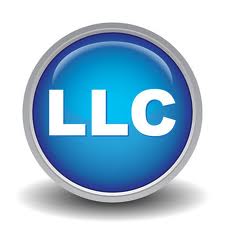
Is an LLC right for you?
Choosing the right form of entity for your planned business is an important step in your business formation. Unless you have a great deal of business experience, use wisdom and seek out the advice of a business attorney and accountant before forming a legal entity. When it comes to legal entities, one of the most versatile business structured is the limited liability company or LLC. Each state in the United States has its own rules and regulations governing a limited liability company; however, the advantages to a limited liability company are many - especially over a sole proprietorship or partnership.
WORD OF WARNING to online marketers and network marketers: Concerning that of operating as a sole proprietor (or operating as an unlicensed individual in business), it would be foolish to do so if you have any sort of personal assets or personal wealth. When you operate as a sole proprietorship, if someone sues you for something, they can not only go after your company assets, but also your personal assets. These assets include your personal car, personally owned real estate, bank accounts, and investments. If your name is attached to it, you can lose it in a lawsuit if you operated as a sole proprietorship. We recommend that you do NOT operate as a sole proprietorship for anything that you are doing - even as an online marketer or network marketer. In our lawsuit crazed culture, operating as a sole proprietorship is simply not wise (or as Mike Patz says, "Eating from the tree of stupid.")
We have listed some of the advantages of doing business as a limited liability company (LLC), along with some notable disadvantages to a limited liability company below.
Advantages of Forming a Limited Liability Company (LLC)*
Among some of the potential advantages to a limited liability company is that it is an excellent way to protect your personal assets without the added scrutiny that comes from forming a corporation. There are also some potential tax advantages in forming an limited liability company (LLC) over that of a close corporation (INC). A limited liability company (LLC) combines the liability protection of a corporate entity with favorable taxation on its owners/partners, and an easier approach to management like that of the administration of a partnership.
Formalities of a Limited Liability Company
- By far, a limited liability company (LLC) saves lots of time and money for members. There are no requirements for recording corporate resolution or taking corporate minutes, so management is easier. While we do recommend that accurate notes of communication is kept for the LLC at large, i.e. quarterly or annual meetings, or when major decisions are made, they are not mandatory like that which is required if you operate a close corporation.
Flexibility of a Limited Liability Company
- Limited liability company's have no restriction on the number of members (members are the equivalent of shareholders in a corporation) that are allowed to take part in the LLC.
- Members of a limited liability company benefit from the flexibility in how the management structure of the company is set up.
- A limited liability company has the flexibility of varying types of distribution of the profits of the LLC, as compared to a traditional partnership (which we seldom recommend to anyone). A partnership has a 50%/50% profit or loss split. A limited liability company offers a more flexible distribution of profits, as they can be split up almost any way the members want it to be.
 Taxation affecting a Limited Liability Company
Taxation affecting a Limited Liability Company
- LLCs are very popular (at least in Florida) for their pass-through taxation. Pass-through taxation is where the members of the LLC (the LLC owners) are able to report their share of the limited liability company's profit or loss on their individual tax returns. If there is any tax that is due, it is paid at the individual level and not at a corporate level which is typically more in most States.
- When there are multiple members in an LLC, the limited liability company files an informational partnership tax return the the LLC. A single member LLC reports all the income or loss on a Schedule C (very much the same way that a sole proprietor does).
- One of the other financial benefits that is attractive to most entrepreneurs is that the pass-through taxation avoids the double taxation that close corporations (C corps) must pay, as well as the individual who might receive corporate profits in the form of dividends to owners (stock holders).
Ability to add Subsidiaries with a Limited Liability Company
- If you are an entrepreneur and have lots of ideas for making money, or think you will be working with others that will have lots of ideas, the LLC is the way to go.
- Unlike an S corporation, LLCs can have any number of subsidiaries operating under them.
Disadvantages to Forming an LLC*
While not every State in the United States has the same laws governing a limited liability company, there are some disadvantages to forming your business entity as an LLC. Take the time to investigate all of them and see if an LLC is the right way for you to go after considering the bigger disadvantages of operating a business as an LLC.
If you foresee yourself transferring ownership of your company to someone else, it will be more difficult than with a close corporation.
Participants in the LLC must be sure to have a thorough outline of ownership transference written into the operating agreement.
Operating agreement must be very clear on whether or not ownership can be transferred, and to who it can be transferred to, and whether or not members of the LLC must approve the transfer or not.
Check with the Secretary of State in your home state before you decide on an LLC if you feel that you may want to transfer your ownership to someone else or that other members of your LLC will be allowed to do so.
Limited Case Law or Legal Precedent
Limited liability companies are a relatively new form of business entity. As such, there is very little case law (cases that have been tried in court that reflect judgments or court decisions). This could become problematic if you or someone in your LLC brings disputes related to the LLC before a court of law.
 Initial Costs and Fees for a Limited Liability Company
Initial Costs and Fees for a Limited Liability Company
- Limited liability companies cost more to set up than a general partnership or sole proprietorship.
- Annual filings are more for LLCs than that of general partnerships or sole proprietorships.
*This article is not intended to offer any legal advice. The advantages and disadvantages listed in this article are predicated on a person forming a limited liability company in Florida. We strongly recommend that if you do not live in or plan to operate your business from Florida, that you consult the laws of the State where you live and consult a reputable attorney.


I see a lot of interesting posts on your site’s blog. Always an educational process being here LOL.
I always enjoy this content here. There is always something to learn and it’s great not feeling like everything you write is an attempt to sell me something. Good job.
Thanks for the information and followup on my email. It really helped my efforts in getting set up.